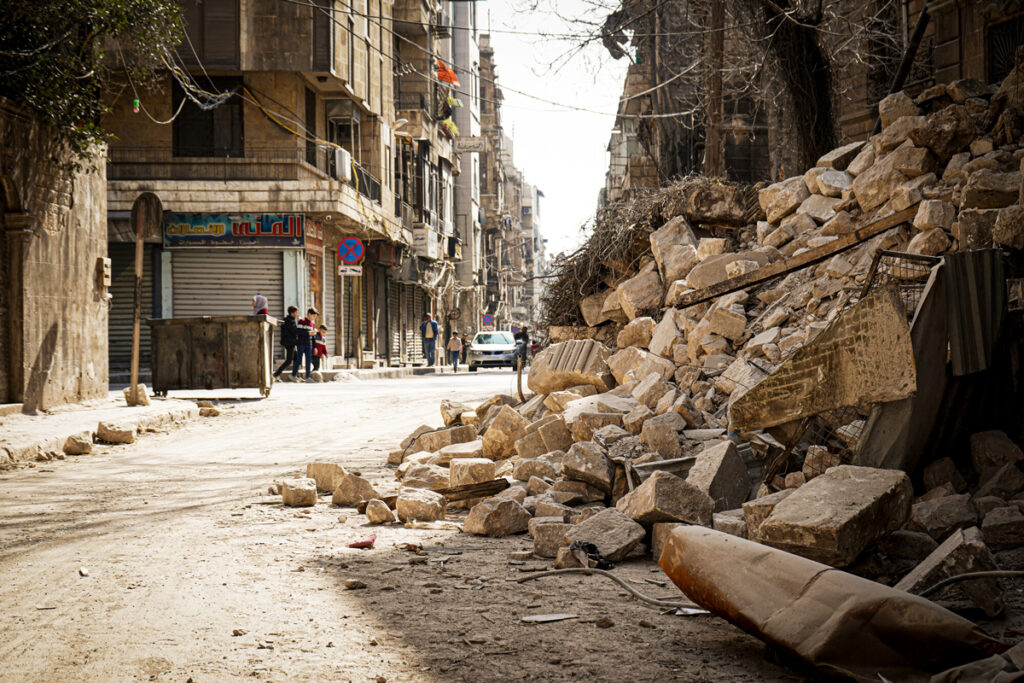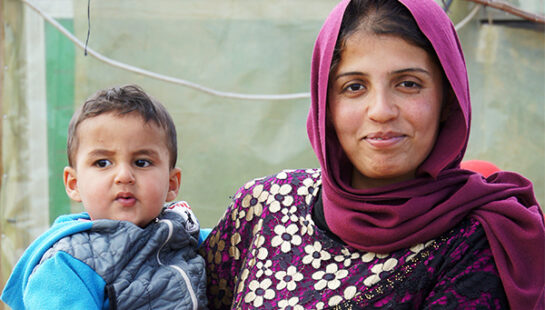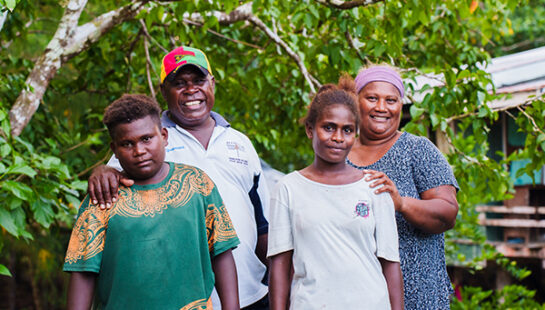With so much happening around the world, our news feeds can be crowded with news of violent conflicts, floods, earthquakes and famine. But what happens when the media stops paying attention to a disaster?
When missiles first hit Ukraine in the early hours of February 24, it wasn’t long until screens around the world started buzzing, monopolised by images of an escalating war.
Donations poured in as people rushed to help communities shattered by air raids and artillery barrages. But the spotlight didn’t last. The media moved on to the next story, and recently, as the war passed the one-year mark, donations have dwindled.
‘Today the war in Ukraine is not a front-page topic,’ said Allan Bussard, director of Baptist World Aid’s Christian Partner in the region. ‘The end is nowhere in sight, and the spontaneous outpouring of help is over.’
‘But millions of people in Ukraine are still without access to necessities like water, food, healthcare, sanitation, gas, and electricity.’
A Collaborative Effort
When media coverage fades after a flood, earthquake, or the initial shock of war, it’s easy to forget about the devastated communities left picking up the pieces. That’s why Kelsea Clingeleffer, Baptist World Aid’s International Programs Coordinator, believes providing support isn’t a one-off response.
‘Disaster Management is an entire spectrum —from helping people prepare, to providing emergency relief and supporting recovery,’ said Kelsea.
Disaster management is an entire spectrum—from helping people prepare, to providing emergency relief and supporting recovery.
And it’s a collaborative effort between impacted communities, governments, churches, organisations, and donors. ‘Being part of the body of Christ means we work together to help our neighbours, whether they’re facing a major disaster or a minor one that doesn’t even make the news,’ Kelsea added.
This work starts well before a disaster occurs. Living on a fault line or flood plain isn’t the only factor that makes someone vulnerable to disaster. A community’s social and economic situation can also determine its chances of survival.
‘Our Partner’s disaster preparation work is closely tied with helping communities tackle problems like poverty, child malnutrition, and lack of women’s rights,’ Kelsea said. ‘If parents are earning an income and families have enough to eat, when disaster comes, they’ll be in a better position to recover.’
Addressing specific disaster risks is also vital, even though this kind of work doesn’t often grab the media’s attention. According to the National Institute of Building Sciences, every dollar invested in disaster mitigation can save six dollars in recovery costs.
Last year, our Partners helped 97 communities develop disaster risk reduction plans, with measures ranging from stabilising flood-prone riverbanks, to creating evacuation procedures. In Kenya, for example, our Partner has long been helping farmers switch to drought-resistant varieties of green grams that require around 20 per cent less water than usual crops to thrive. As the region faces severe drought, those farmers are still able to harvest.
Emergency Response in Action
But what about when a disaster strikes? Every second counts, but providing immediate aid is no small task if you’re crossing oceans, entering conflict zones, or don’t yet know what people need.
Our local Christian Partners are often best placed to offer emergency relief. With networks in impacted communities, they can quickly reach people and ascertain their needs.
When deadly earthquakes hit Türkiye and Syria on 6 February this year, our Partner in the region immediately helped Syrian churches provide aid. To continue their efforts, Baptist World Aid supporters, over 11,000 kilometres away, helped provide around 7,000 families in Syria with food baskets, warm clothing, and hygiene kits—and that was just a fraction of the assistance provided by God’s people around the world, working together as one body.

From Emergency Relief to Long-term Support
This work doesn’t cease, even when the media’s spotlight fades. After a disaster, recovery is a process that can take years—especially when a disaster impacts an area already in a state of crisis, such as an earthquake in a conflict zone.
Once people can meet their basic needs, emergency relief transitions into building a new normal: replacing tents with homes, re-opening schools, restoring financial security, healing from trauma. Assistance is provided in consultation with community members, who determine what support is helpful to them.
This is the situation many displaced people from Ukraine are currently in. More 8.1 million refugees from Ukraine have been recorded across Europe since the war began, many of them living in Slovakia and Poland.
As the war continues, their needs have shifted from emergency relief to long-term support—and our Partners, along with Baptist Unions in Eastern Europe, are providing help. Parents are finding employment, and children are attending school. People are accessing counselling services, legal assistance, medical services, and financial support as they look for work in a new country.
It’s a story of resilience that continues, long after the spotlight fades.
Last year disasters impacted over 185 million people. Partner with us to send help to families caught in disaster.




 Heather Keith,
Heather Keith,